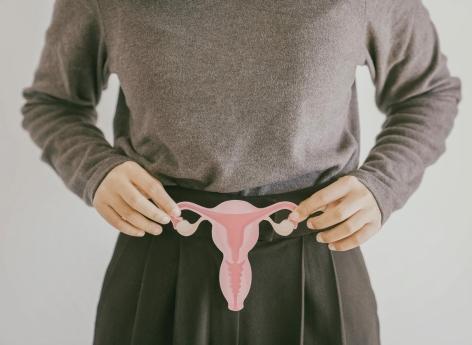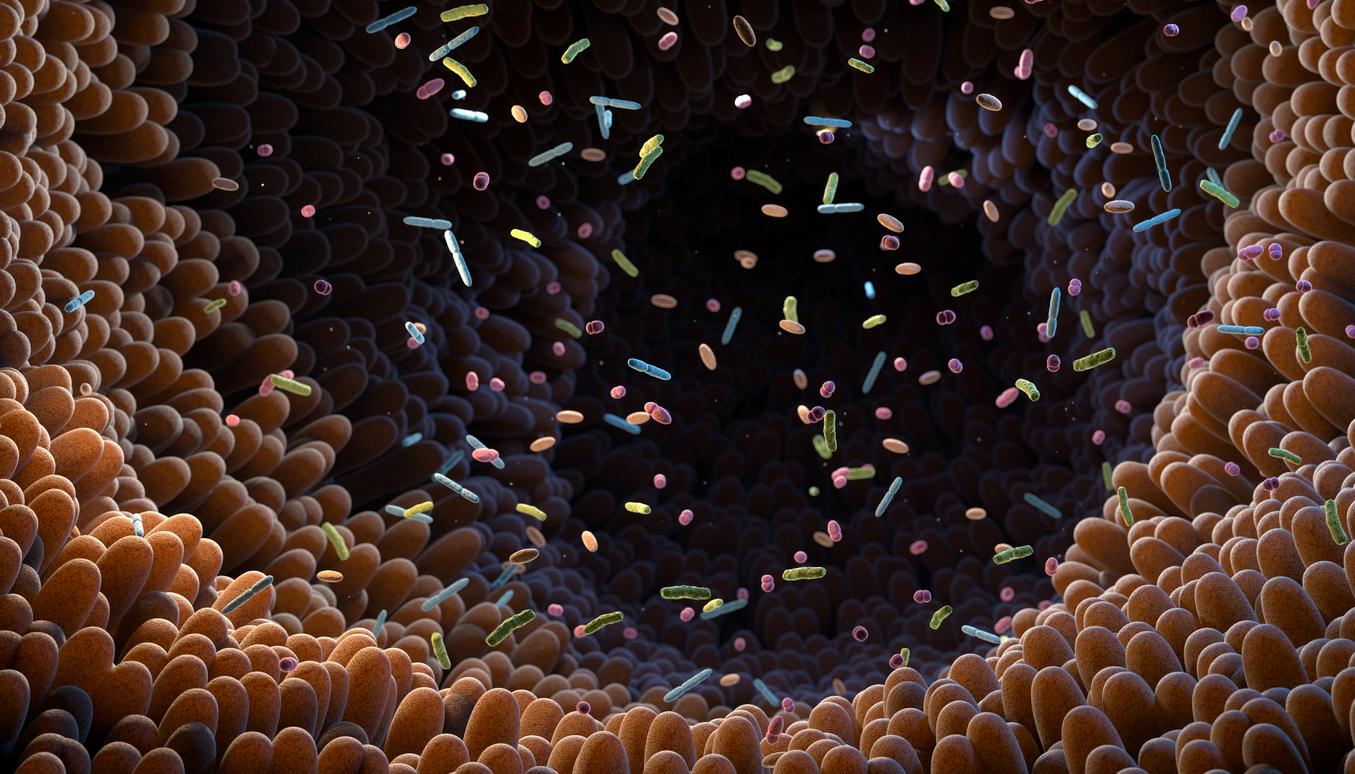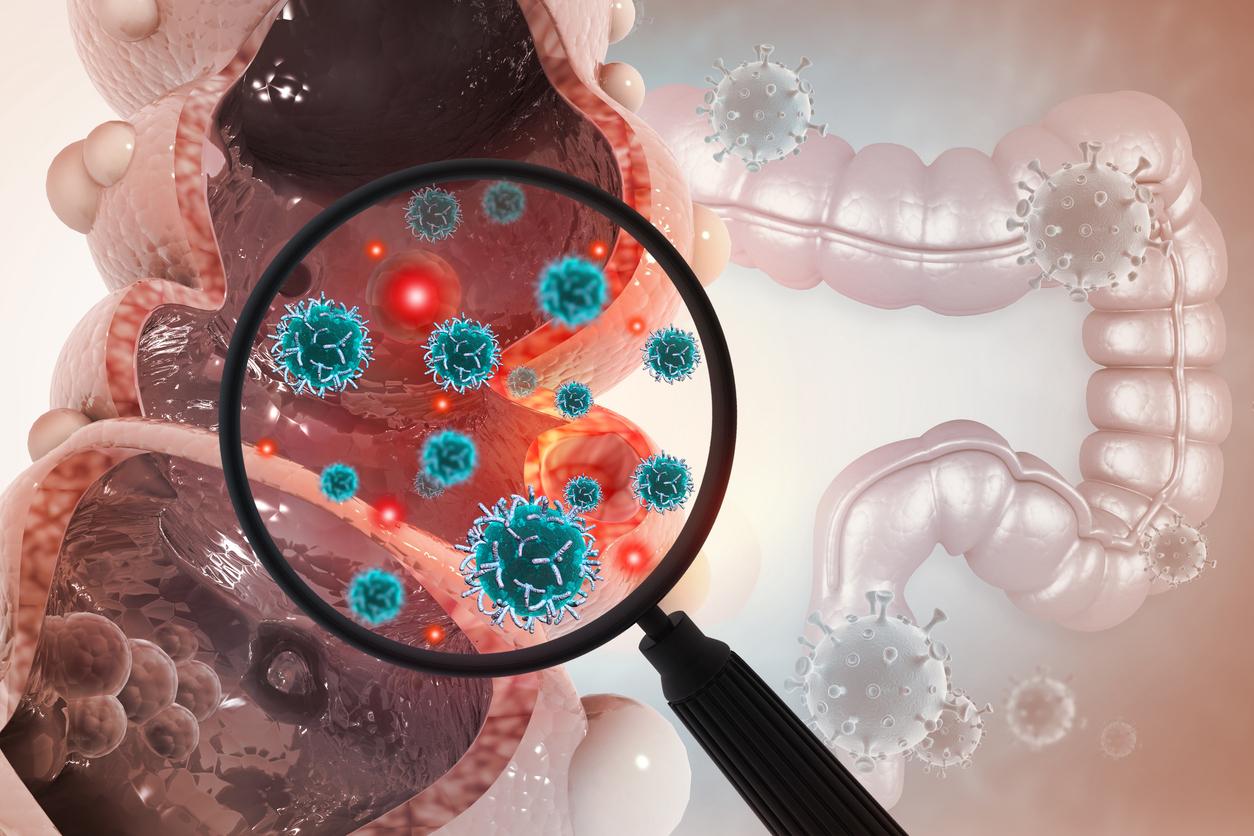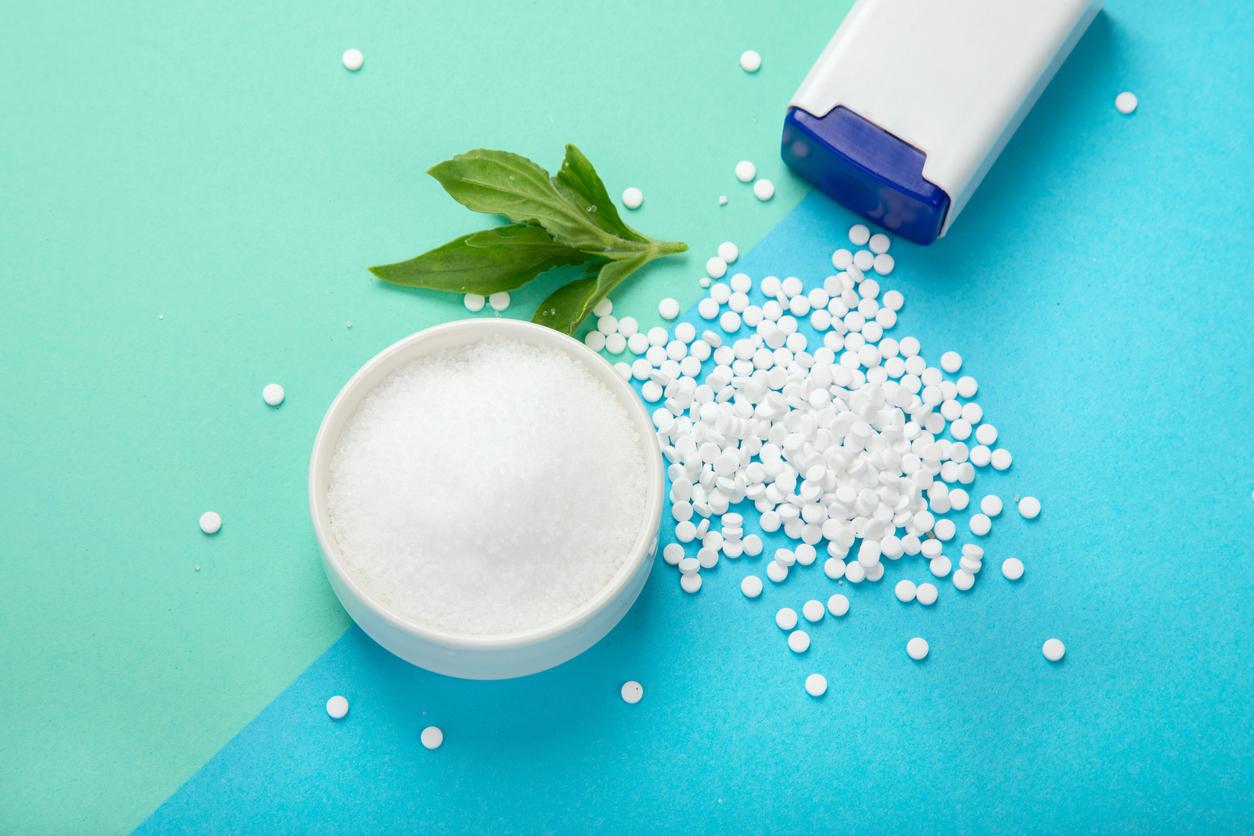By carrying out an endoscopy examination on more than 1,000 patients, Austrian researchers found that in the majority of cases of irritable bowel syndrome, bacterial biofilms were present in the intestine. This could be the cause of the disease.

- By performing endoscopies on more than 1,000 patients, doctors have found the cause of irritable bowel syndrome: the formation of bacterial biofilms on the walls of the large intestine and the small intestine.
- Patients who have taken a lot of drugs, especially in the context of an organ transplant, would be particularly at risk.
- This discovery paves the way for a possible treatment to reduce the symptoms of irritable bowel syndrome.
Affecting an average of 5% of the adult population, irritable bowel syndrome (IBS) is a benign disorder of the functioning of the intestine, colon and/or large intestine, but which can cause significant discomfort such as abdominal pain. , diarrhea or constipation. The diagnosis is generally made between the ages of 30 and 40, although this syndrome may appear before, in children or adolescents. Among patients, women are generally more affected than men, with a ratio of three to one in the adult population.
For people with IBS, coping with the disease is all the more difficult as they are often victims of diagnostic error. Even with currently available techniques, it is only possible to diagnose IBS through a process of elimination. Most people with irritable bowel syndrome don’t see their doctor until they have severe symptoms. And again, sometimes they are not taken seriously by doctors, simply because no cause for the disease has been clearly identified.
But that could change. In a study published in the journal Gastroenterologyresearchers from the University of Vienna demonstrate that, in most cases, IBS is associated with bacterial biofilms in the intestine, visible during an endoscopic examination.
Disruption of the gut microbiota by drugs
“For the first time, we have succeeded in identifying a cause of irritable bowel syndrome and, at the same time, showing how this disease can be more accurately diagnosed, classified and assessed”says Christoph Gasche, head of the molecular gastroenterology laboratory at the Medical University of Vienna and responsible for the study.
According to the researchers, people at risk of IBS are those who have taken a lot of medication during their lifetime, such that the balance of their intestinal microbiota has been disturbed, in particular by the formation of biofilms. bacterial. Patients who have already undergone an organ transplant are particularly at risk. “Certain drugs, such as proton pump inhibitors, can disrupt the balance of the bacterial ecosystem. The bacteria then go into survival mode. To give themselves a better chance of surviving this stress, they group together by safety and form biofilms, a kind of protective space that makes them resistant to antibiotics and other environmental toxins”explains Dr. Gasche.
Towards a possible treatment for irritable bowel syndrome
In total, more than 1,000 colonoscopies were performed in a multicenter study, and it was found that two-thirds of people who had symptoms of IBS also had biofilms in their small or large intestine. However, these mucosal biofilms are also present in a third of patients with ulcerative colitis.
“Up to now, research has always assumed that this sticky film is made up of residues of impurities present in the intestine, which are difficult to eliminate. However, we have now been able to show that this is where the bacterial matrix adheres”explains Dr. Gasche.
This discovery could lead to a possible treatment for IBS to alleviate its symptoms. Because, in many cases, it is possible to wash away these biofilms in the large intestine using an endoscopic “spray gun”. That However, this technique cannot yet be used to eliminate biofilms from the small intestine, where they are also frequent. But this discovery remains encouraging. “Biofilms, which reflect an imbalance of the intestinal flora, could well explain the symptoms of patients suffering from irritable bowel syndrome and, therefore, give rise to new therapeutic approaches”conclude the authors.
.

















